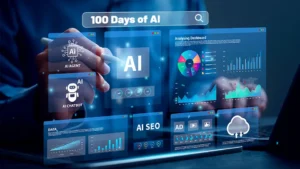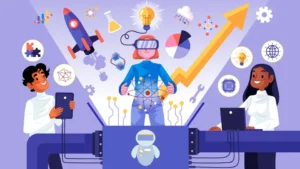The travel industry is undergoing its most radical transformation since the jet engine. Artificial Intelligence isn’t just streamlining bookings—it’s reimagining every touchpoint, from dream inspiration to homecoming. By 2025, AI-driven travel tech will be a $1.2 trillion market (Statista). Here’s how it’s rewriting the rules:
1. Hyper-Personalized Planning
Gone are generic package tours. AI analyzes your social media, past trips, and even mood:
• Google’s Travel Planner: Combines Gmail reservations, Maps history, and photo preferences to build custom itineraries.
• Hopper’s “Trip Intelligence”: Predicts optimal booking windows with 95% accuracy using 70TB+ of flight data.
*Result: 68% of travelers now expect AI-curated trips* (Amadeus).
2. Real-Time Problem Solvers
AI mitigates travel chaos:
• SITA’s Smart Path: Facial recognition for bag drop + boarding cuts airport queues by 70%.
• Delta’s AI Concierge: Messengers reroute passengers during delays before humans announce disruptions.
• Lufthansa’s Chatbots: Resolve 500k+ monthly queries in 5 languages (reducing call center loads).
3. Immersive Previews & AR Navigation
• Virtual Try-Before-You-Fly: Marriott’s Meta Horizon Worlds lets users “walk through” Bali suites pre-booking.
• AI Tour Guides: Google Lens overlay identifies Kyoto temple details via smartphone camera.
• Museum AR: Louvre’s Claude AI explains artworks based on visitor gaze duration.
4. Dynamic Pricing & Sustainability
• KAYAK Eco Search: Flags low-emission flights and calculates carbon offset costs.
• Searoutes AI: Maps maritime freight paths avoiding ecologically sensitive zones.
• Yield Pricing AI: Hotels adjust rates in real-time based on weather forecasts and event demand.
5. Predictive Hospitality
Hotels anticipate needs:
• Hilton’s Connie Robot: Uses NLP to recommend local experiences based on guest questions.
• Duplex by Google: AI calls restaurants to book tables matching dietary preferences logged in Gmail.
• Seoul’s AI Taxis: Adjust routes using predictive congestion models.
Ethical Challenges
• Privacy Risks: Biometric data storage (e.g., Changi Airport’s iris scans) demands GDPR++ compliance.
• Algorithm Bias: Skyscanner found flight recommendations favored pricier options for female users.
• Dehumanization: 41% fear over-reliance on AI diminishes cultural serendipity (WTTC).
The Next Frontier
1. Generative AI Travel Agents:
Expedia’s ChatGPT plugin books hotels through conversational prompts (“Find a Rome balcony with cat sanctuary views”).
2. Emotion-Sensing Interfaces:
Japan Airlines tests AI seats adjusting lighting/music based on passenger stress levels.
3. Climate-Responsive Routing:
KLM’s Fly Responsibly tool diverts flights from developing contrail zones.
“AI won’t replace travel agents—it will make them shamans of hyper-personalization. The magic lies in blending data with human intuition to turn algorithms into awe.”
– Skift Research, 2024






